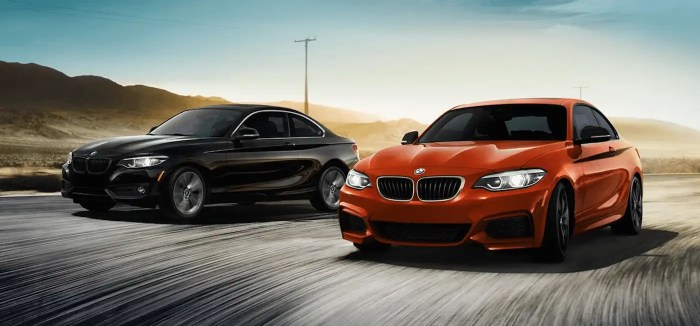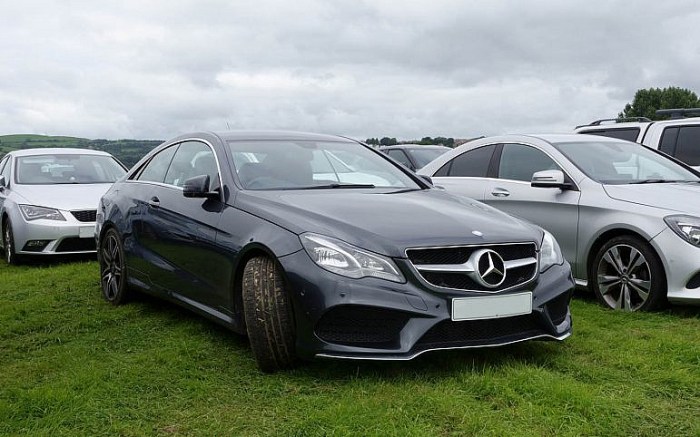BMW sport coupe vs sedan is a comparison that stirs the excitement of automotive enthusiasts and casual drivers alike. These two distinct models not only showcase BMW’s engineering prowess but also reflect varied lifestyles and driving preferences. While the sport coupe embodies a sleek and dynamic aesthetic aimed at performance lovers, the sedan offers a blend of comfort and practicality for daily commuters. Understanding the unique attributes of each model will help potential buyers make an informed choice that aligns with their needs.
In this topic, you find that Coupe vs convertible sports cars is very useful.
This exploration delves into the intricate design, performance capabilities, technological advancements, and overall value of the BMW sport coupe and sedan. Both vehicles have carved their niche within the BMW lineup, appealing to different segments of car enthusiasts and everyday drivers.
Understand how the union of Manual transmission sports cars can improve efficiency and productivity.
Overview of BMW Sport Coupe and Sedan: BMW Sport Coupe Vs Sedan
The BMW sport coupe and sedan models stand as two pillars of the brand’s identity, each catering to distinct driving preferences and lifestyles. The sport coupe, often characterized by its sleek lines and sporty performance, embodies a sense of youthful dynamism. In contrast, the sedan offers a more practical and spacious design while still delivering the trademark BMW driving experience. Historically, these vehicle types have evolved significantly within the BMW lineup, adapting to changing consumer needs and technological advancements.
The target audience for the sport coupe typically includes younger, performance-oriented drivers who prioritize style and agility, while the sedan appeals to families and professionals seeking comfort, space, and versatility without sacrificing performance.
Design and Aesthetics

When comparing the exterior designs of the BMW sport coupe and sedan, the differences are striking. The sport coupe features a lower roofline, aggressive stance, and intricately designed LED headlights that emphasize its athletic nature. On the other hand, the sedan showcases a more refined and classic silhouette, with a focus on elegance and sophistication.
Inside, both models exhibit high-quality materials and luxurious finishes. The sport coupe often emphasizes a driver-focused cockpit with sport seats, while the sedan prioritizes passenger comfort with spacious seating and a range of upscale options.
| Model | Length (in) | Width (in) | Height (in) | Weight (lbs) |
|---|---|---|---|---|
| BMW Sport Coupe | 182.5 | 74.3 | 54.8 | 3,400 |
| BMW Sedan | 192.5 | 73.0 | 56.4 | 3,600 |
Performance and Handling, BMW sport coupe vs sedan
Both the BMW sport coupe and sedan offer a range of powerful engine options. The sport coupe typically features turbocharged inline engines that provide quick acceleration and exhilarating performance. Performance specifications often highlight horsepower numbers exceeding 300, making it a delight for driving enthusiasts. Conversely, the sedan, while still sporty, may offer a broader range of engines that balance power with fuel efficiency.
Handling characteristics for both models are refined, with the sport coupe excelling in agility and cornering capabilities, thanks to a lower center of gravity. The sedan, while also capable, focuses more on a stable and comfortable ride, making it suitable for longer journeys.
- Sport Coupe Advantages:
- Superior agility and cornering performance
- More powerful engine options
- Sportier design and aesthetics
- Sedan Advantages:
- More spacious interior and trunk
- Balanced performance with comfort for daily use
- Practicality for families and long trips
Technology and Features
Both the BMW sport coupe and sedan are laden with advanced technological features that enhance the driving experience. Infotainment systems in each model typically include a large touchscreen display, navigation, and smartphone integration capabilities. Notably, the sedan often comes with more standard features, catering to families who value convenience and connectivity.
Safety is a priority for both models, and they typically receive high ratings from safety organizations.
| Feature | Sport Coupe | Sedan |
|---|---|---|
| Adaptive Cruise Control | Available | Standard |
| Blind Spot Monitoring | Available | Standard |
| Lane Departure Warning | Standard | Standard |
| Rearview Camera | Standard | Standard |
Cost and Value

The price range for the BMW sport coupe generally starts at a higher base than the sedan, reflecting its performance-oriented nature. As of 2023, sport coupes can range from $45,000 to $70,000, depending on the model and options selected. Conversely, the sedan typically starts around $40,000 and can go up to $65,000.
Resale value and depreciation trends indicate that both model types hold their value well, but the sport coupe may see a sharper depreciation curve due to niche demand.
- Cost of Ownership Factors:
- Insurance rates can vary based on model; sport coupes generally higher
- Maintenance costs similar but can vary based on performance parts
- Fuel economy varies; sedans typically offer better mileage
Practicality and Comfort
Space and comfort are where the differences between the sport coupe and sedan become evident. The sedan’s larger dimensions provide ample room for passengers, making it ideal for families or those who frequently travel with multiple passengers. Meanwhile, the sport coupe, while less spacious, still offers a comfortable experience for front-seat occupants.
Trunk and cargo space also favor the sedan, which often features a larger trunk, enabling easier storage for luggage and groceries. The sport coupe’s trunk may be limited, focusing more on design than utility.
Insights into daily driving show that the sedan is often favored for commuting and family outings due to its comfort and space, while the sport coupe is better suited for spirited driving on weekends or as a secondary vehicle.
Customer Reviews and Feedback
Customer reviews for both the BMW sport coupe and sedan are generally favorable, with owners praising the driving dynamics and build quality. Testimonials often highlight the sport coupe’s exhilarating performance but may note its limited rear-seat space as a downside. Conversely, sedan owners appreciate the spaciousness and comfort but can express a desire for more sporty handling.
- Common Praises:
- Sport Coupe: “Incredible handling and acceleration!”
- Sedan: “Perfect balance of comfort and performance!”
- Common Criticisms:
- Sport Coupe: “Limited back seat space for passengers.”
- Sedan: “Lacks the sporty edge of the coupe.”
Future Trends and Innovations
The automotive industry is rapidly evolving, and upcoming trends may significantly impact both BMW sport coupes and sedans. Electric vehicle technology is becoming increasingly prominent, with BMW investing heavily in developing electric alternatives for both model types. Innovations such as improved battery technology and autonomous driving features are also anticipated, potentially reshaping the driving experience.
The potential introduction of hybrid and electric variants may attract a broader audience, looking for performance alongside sustainability. The impact of these technologies could redefine the market dynamics for sport coupes and sedans, appealing to environmentally conscious consumers while retaining the performance DNA that BMW is known for.
Conclusion

In conclusion, the BMW sport coupe and sedan each present compelling cases for different drivers. The sport coupe, with its sporty demeanor and sharp handling, caters to those who prioritize performance and style, while the sedan excels in practicality and comfort for those who need a reliable daily driver. As the automotive landscape evolves with emerging trends and technologies, both models remain significant contenders in their segments, ensuring BMW’s legacy of excellence continues.